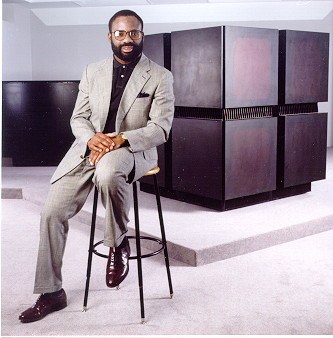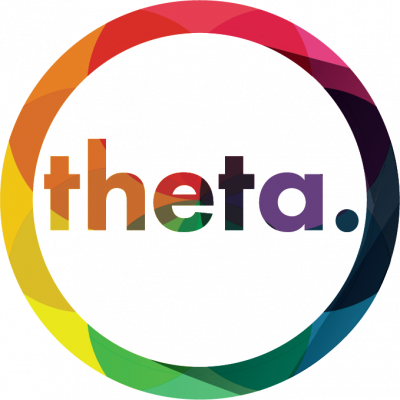Continuing our trend of highlighting prominent African Americans that have contributed to the progression of tech innovation for Black History Month, Theta would like to share another historical figure who has impacted the tech industry in the last 100 years.

Philip Emeagwali, Ph.D., is a Nigerian-American Computer Scientist known for being the inventor of the World’s Fastest Computer. Dr. Emeagwali was born in Onitsha, Nigeria in 1954. Although by age 14, he was well known by classmates as being a math whiz, he was unable to continue his formal education because his father was unable to continue paying the fees. He continued his education at home with his father’s assistance. Dr. Emeagwali’s father taught him until he knew more than him, and he often challenged himself to solve 100 math problems daily. Dr. Emeagwali was able to receive a scholarship to Oregon State University at 17 years old and graduated with a BS in mathematics. He went on to complete two Masters Degrees in engineering from George Washington University and a Ph.D. in Scientific Computing from the University of Michigan.
In 1989, using studies from the understanding of bees and their hives, Dr. Emeagwali, developed the world’s fastest computer known as The Connection Machine. He used 65,536 processors, linked in parallel, to develop the computer. The computer emulated the way bees constructed and work with a honeycomb and performed at 3.1 billion calculations per second. His work on The Connection Machine earned him the Gordon Bell Prize of 1989.
Dr. Emeagwali has won many awards for his work including, but not limited to, The Nigeria Prize and Pioneer of the Year from The National Society of Black Engineers, The Nigerian Achiever Award, Distinguished Scientist Award from The National Society of Black Engineers in America, and the Gordon Bell Prize. Dr. Emeagwali has been quoted as saying, “I find supercomputing to be a fascinating, challenging, and critical technology that can be used to solve many important societal problems, such as predicting the spread of AIDS, and many other computational `grand challenges.’ These are scientific problems whose accurate solution requires that a quadrillion or more arithmetical calculations be performed.” Dr. Emeagwali’s work has been used in many ways over the years, and his computers are currently being used to forecast the weather and to predict the likelihood and effects of future global warming.
From Theta, we want to thank Dr. Emeagwali for his contributions to the world through tech.
About Theta
Theta, an African-American managed, SBA-Certified HUBZone digital & management firm focused on solving civic and tech issues in the health, civilian, and selective defense industries using our unique technology expertise, hope to help cultivate and highlight the new talent of color hungry to contribute to the world through innovative tech ideas.
Let our team at Theta show you how our diverse team can bring fresh new innovative approaches to your business problems. Contact us here.
Sources
https://www.black-inventor.com/dr-philip-emeagwali
https://www.thoughtco.com/philip-emeagwali-4689182
http://www.math.buffalo.edu/mad/computer-science/emeagwali_philip.html

